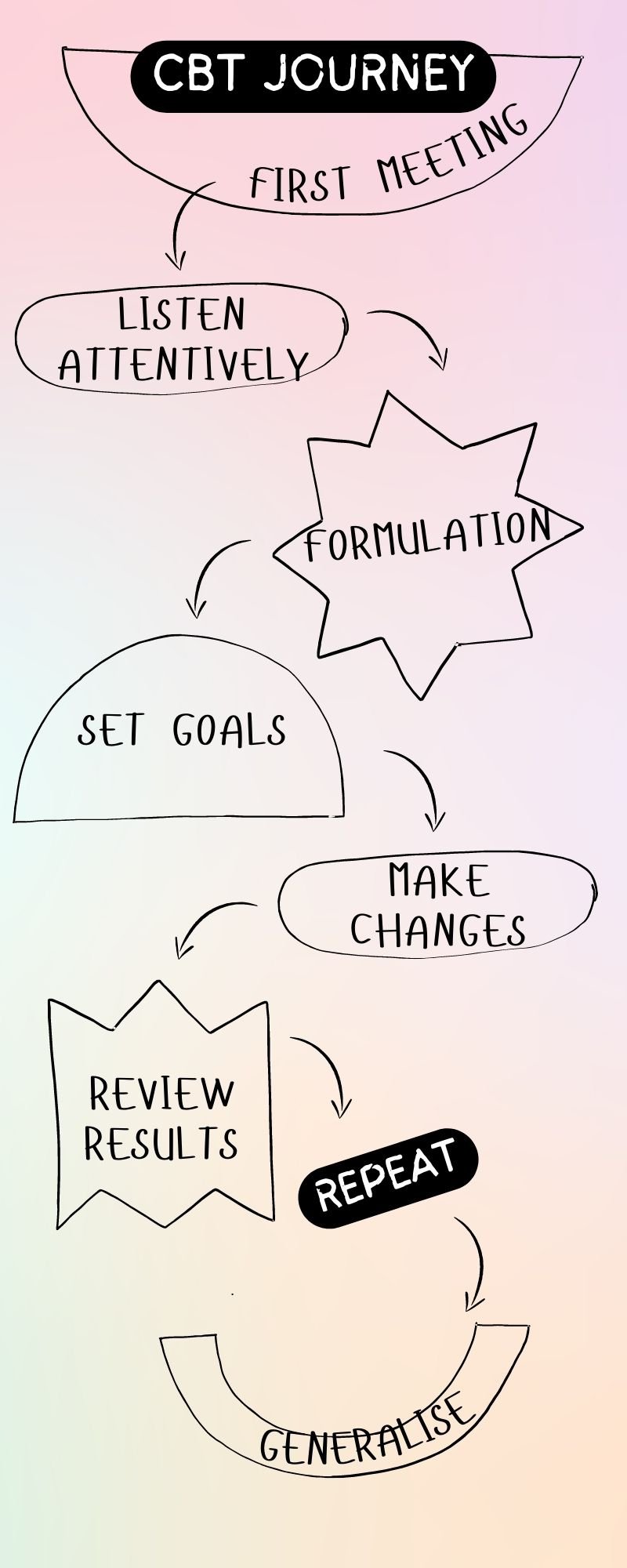Your journey through CBT therapy
I’ve written other posts about the theoretical background of Cognitive Behavioural Therapy. The practical steps of Cognitive Behavioural Therapy however, what happens during our therapy sessions, is a whole different story.
Upon meeting each other in our first session, we decide if our chemistry seems to work by getting to know each other. What problems is your family facing, what have you already tried, what has worked and what hasn’t? I listen attentively to you, formulating a plan on how and whether CBT would be a right fit for you and your child, or if we should look at different approaches.
We set our goals together, both short-term and long-term. An example can be initially to build the skill to identify triggers for anxiety and body sensations related to anxiety, followed by changing automatic worrying thoughts into positive, realistic and helpful thoughts. We then start working on making the changes in your child and family’s life: we practice new skills in our sessions, set homework to practice the skills outside of the therapy room, and further reviewing the results in our following session together. We discuss this process, where encouragement and prompting of using the skills is emphasised. This is a repeated process, until your child can utilise the learned skill independently and frequently.
We then move towards generalising our findings to other situations; anxiety is not only on one specific area, so practicing your learned skills to new and more environments is then recommended. When your child is able to independently use their skills in multiple environments, we have reached the end of our therapy journey together.
Some choose to come back once a month or every few months to check-in on their progress and further practice if needed. Others are capable to utilise their learned skills independently, so I am no longer needed in their journey.
My role is to train your child how to think of their problems, in a more helpful way, and then be able to cope with their problematic thoughts on their own. I train them to be able to utilise this independently.

